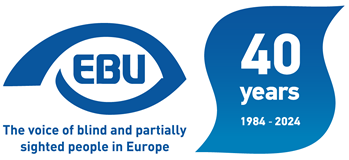Creative Europe/MEDIA
In a letter of reply, the competent unit at the European Commission’s DG CNECT:
- Recognised that the media and the audiovisual sector have a considerable say in what shapes our values and perception of reality, and are a key channel for changing attitudes and challenging stereotypes;
- Confirmed that MEDIA is therefore committed to improve the access to all audiences and promote the circulation of the works of all talents;
- Stressed that audio description and subtitles costs are already eligible in the production and the distribution schemes of MEDIA, and confirmed that they will be maintained in the next MEDIA program 2021-2027. We find this insufficient by itself, because there needs to a proactive policy of promoting accessibility;
- Announced a further “huge step”: all MEDIA applicants will be asked to commit to promote diversity and inclusiveness (broadly intended, i.e. beyond disability) in their company strategies, and this horizontal criterion will be taken into account in the selection of the projects – a first in EU administration, which they expect to have a huge impact. This, if confirmed, would be a very welcome development, even if the new award criterion is not disability specific, and we would want there to be monitoring of the specific impact on persons with disabilities, possibly even on those with a visual impairment.
Regarding our recommendation to target, for a start, at least 25% of films to receive MEDIA funding, DG CNECT would like to investigate more the needs and practices of the industry, namely to verify to what extent these costs are born by the broadcasters rather than by the producers. A meeting is planned to pursue the dialogue, obtain clarification on some points and discuss how EBU can best accompany the Commission’s efforts.
Marrakesh Treaty
We are still preparing our response to the European Commission’s public consultation, which aims to gather information whether it is necessary to extend the Marrakesh Treaty Directive provisions to non-print works and more types of disabilities in Europe.
EU Disability Rights Strategy.
On 3 March the European Commission presented the EU “Disability Rights Strategy” (as it is now called) for 2021-2030.
After a provisional statement on 4 March, in which we reacted on the main features of the Strategy, and related Twitter communication, we participated in two follow-up meetings:
- an EDF concertation workshop on 17 March, and
- a European Commission’s DG EMPL Strategic Dialogue meeting on 19 March. In this meeting we focused our intervention on the accessibility of elections, on the EU Disability Card, on Creative Europe funding, on the proposed horizontal antidiscrimination directive and on data collection and disability indicators. We also spoke to how we intended to support and participate in the implementation of the Strategy.
We are finalising a comprehensive statement on the new Strategy.
About our regret that the Strategy does say what the Commission is going to do in case the horizontal antidiscrimination directive remains blocked the Council, it is good news that, when presenting the Strategy to the Petitions Committee of the European Parliament on 23 March, Commissioner Dalli said it is looking at alternatives..
Equality in employment
After approval the Employment and Social Affairs committee (EMPL) of the European Parliament in January, the European Parliament plenary adopted on 11 March – more than two months earlier than expected – the own initiative resolution on the implementation of the Equality in Employment Directive in light of the UNCRPD.
In outline, the text calls for:
• a revision of the Employment Equality Directive as soon as possible with a view to harmonising it with the provisions of the UNCRPD and to implement a participatory process aimed at ensuring the direct and full involvement of representative organisations of persons with disabilities
• harmonisation of the definition of disability and to ensure mutual recognition of disability status across Member States to ensure free movement for persons with disabilities and the enjoyment of their EU citizenship rights.
• the collection of EU-wide disability-related data with a human rights-based approach, including on employment and VET, disaggregated by gender, age, disability type, race/ethnic origin, sexual orientation, including persons with disabilities, who have until now been left out of the statistics.
EBU welcomed this resolution through its communication on Twitter.
European Accessibility Act implementation
E-books: Following a formal exchange of letters between the FEP and EBU presidents, our respective national member organisations have been encouraged to liaise at national level with FEP members, in order to share expertise and know how to facilitate and ensure the greatest accessibility in publishing in line with the Act. FEP and its national members are also wanting to learn about the reading habits of blind and partially sighted people.
Payment terminals: our Austrian and German member organisations have joined our Dutch member in a taskforce to make technical recommendations for accessible payment terminals.

